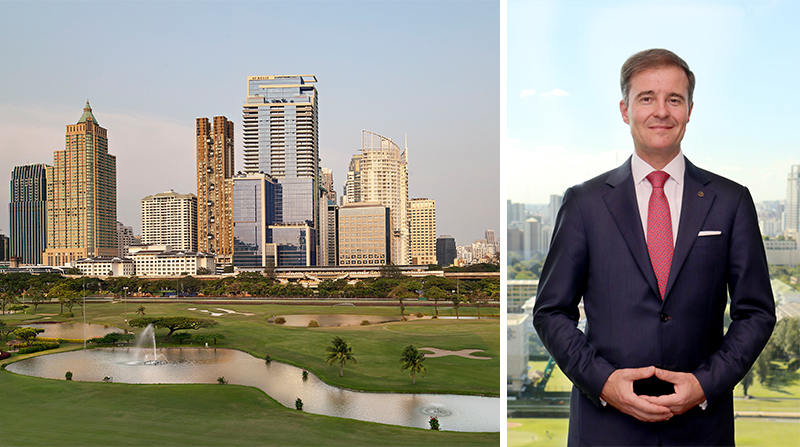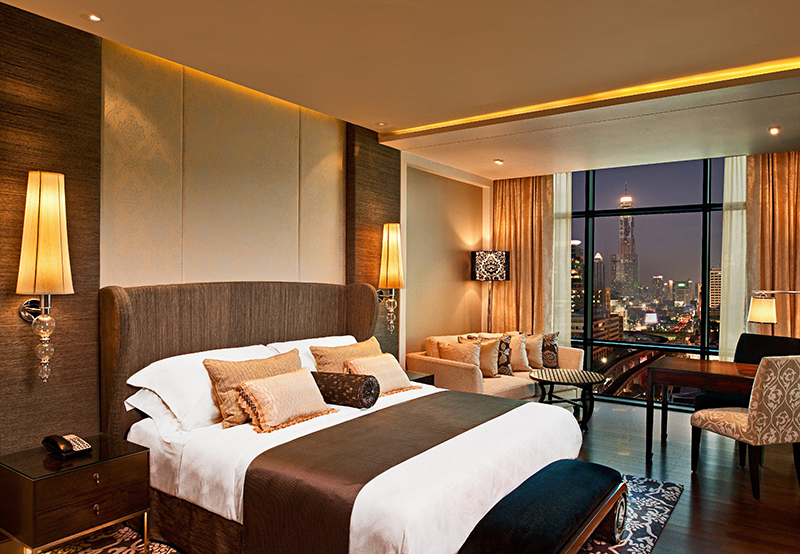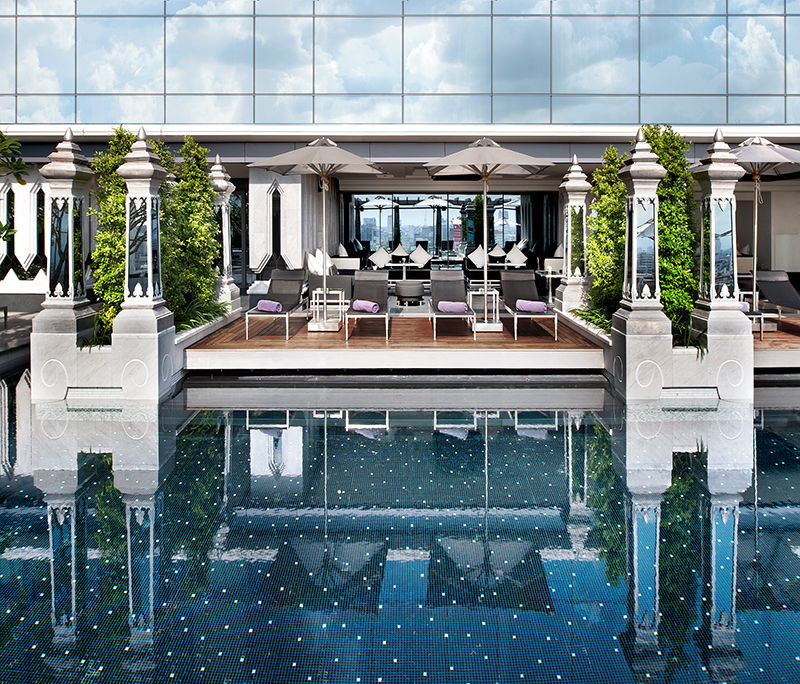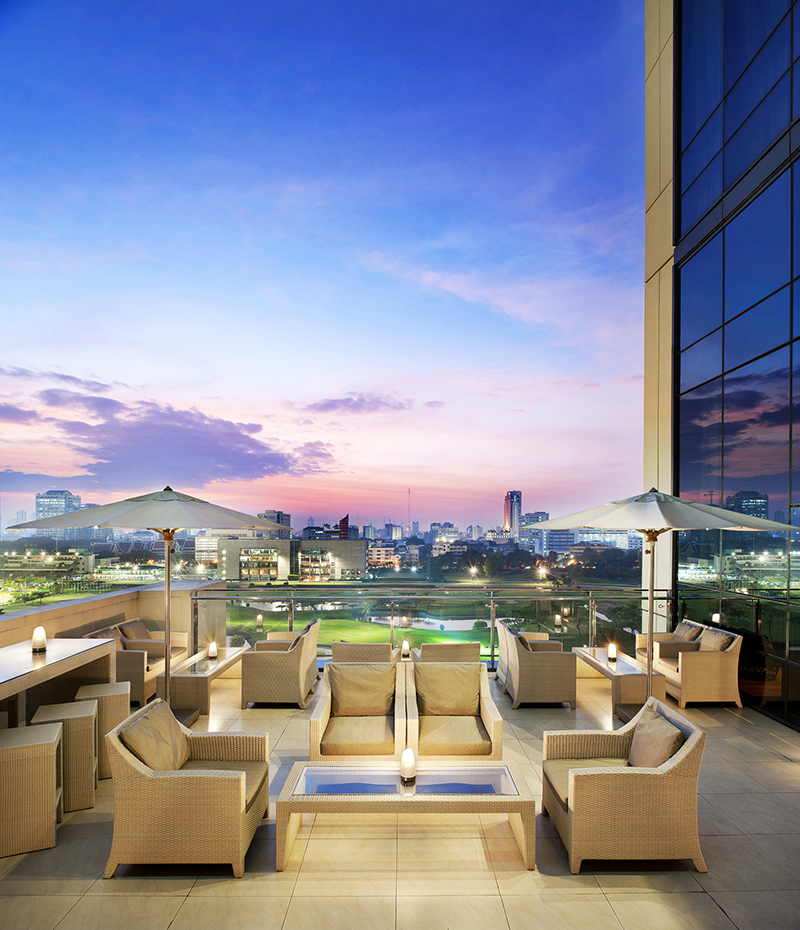
In the heart of Bangkok’s cacophony of sights, sounds and smells sits The St. Regis Bangkok. Humming scooters and scurrying locals don’t seem to bother the Forbes Travel Guide Five-Star property one bit; it’s steadfast as a dapper, 229-room refuge for weathered travelers in the hurried city. Much of the credit for that focus belongs to hotel general manager Klaus Christandl — though he’d never admit that. What he will discuss with us, however, are his thoughts on ratings, Bangkok’s hidden gems and his hotel’s obvious charms.
Your incredible property was named a Forbes Travel Guide Five-Star winner. What does that honor mean to you?
It fills me with great pride. I am absolutely thrilled that the passion and continuous focus on improving our services and product, by the entire team of The St. Regis Bangkok, has been recognized by the prestigious Forbes Travel Guide Five-Star Award for 2018. This honor also means that travelers that have not stayed with us before will now have even more assurance, through this independent, global rating system, that our luxury is not just brand-deep.
The high-end hotel market is extremely competitive in Bangkok. Why should travelers elect to stay with you during their Thai vacation?
The market is indeed very competitive but so are the Forbes Travel Guide awards! Of the three Bangkok hotels receiving the Five-Star distinction, two are on the river [Mandarin Oriental, Bangkok and The Peninsula Bangkok]. We are the only one located in central Bangkok. Our location is a key. We are very connected and very easy to travel around with the direct link to the BTS Skytrain.
That said, our guests also feel like they’re staying in an urban resort, as it’s very relaxing with exceptional views over the green Royal Bangkok Sports Club golf course. Thailand is generally known for its hospitality, but our unique St. Regis Butler service is truly second to none, which makes a world of difference — especially in such a vibrant city like Bangkok.
Any bold plans for 2018 for your hotel?
Our target is to position The St. Regis Bangkok as “The Destination,” not only as the most coveted choice of accommodation, but as a place where guests’ lives are enriched and inspired. While the plan to become the most desired address in the city to enjoy varying lifestyle elements is bold, the journey to get there involves many small steps.
For example, we have recently rolled out Sips & Sounds, a series of sophisticated music collaborations with internationally acclaimed Thai violinist Dr. Paye Srinarong. This program includes different series to appeal to different guests: the Master Series with professionals providing the evening entertainment at The St. Regis Bar; a Little Artist Series, which invites gifted young individuals to perform during our afternoon tea; and the Rising Talents Series, which provides a platform for carefully chosen, young local professional acts to perform in public.
What makes Bangkok such a fascinating destination?
Hidden gems! There are literally millions of hidden places to visit. And thanks to our team of butlers, concierge and destination insiders, I am still discovering lesser-known places that represent the rich culture, history and culinary heritage of this amazing city.
Many travelers know about your city’s beautiful temples and colorful markets, but what are some of Bangkok’s more underrated aspects?
Bangkok has so much to offer that it’s hard to list all of its different elements. Three that I have personally been delightfully surprised by are:
The art scene. The creative energy in the city is palpable. In addition to two Bangkok art biennales that will take place this year, there are also many creative events and festivals that take a bit of research to know when they’re happening but are well worth the effort.
The culinary scene. The Thai dishes that the world knows are only the tip of the iceberg. From its legendary street food to Michelin-starred fine dining, and every flavor under the sun, Bangkok really is a foodie paradise.
The high-end retail scene. Yes, other key cities have luxury shopping malls, but not like we do in Bangkok.
What trends are you noticing with luxury hotels across Asia?
One trend that I’m pleased to see adopted on a wider scale by luxury hotels is involving guests in the hotel’s sustainability initiatives. You see this with resorts growing their own herbs and vegetables onsite and highlighting them in their dishes. A cooking class might be preceded by a visit to a farmers market so they can see, smell and feel the local of life.
Some hotels are also opening up their [corporate social responsibilities] initiatives and inviting guests to join in on activities to give back to the local community on a tangible level, such as visiting local orphanages or cleaning up the beach.
I think as travelers become increasingly aware of their social and environmental footprint, luxury hotels and resorts are starting to respond by expanding their sustainability-friendly practices beyond just re-using towels — all this can only be a good thing as it’s a win-win for guests, the hotel, the community and the Earth.



